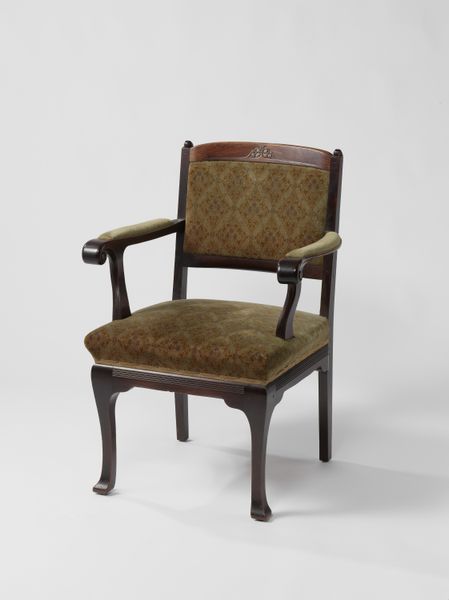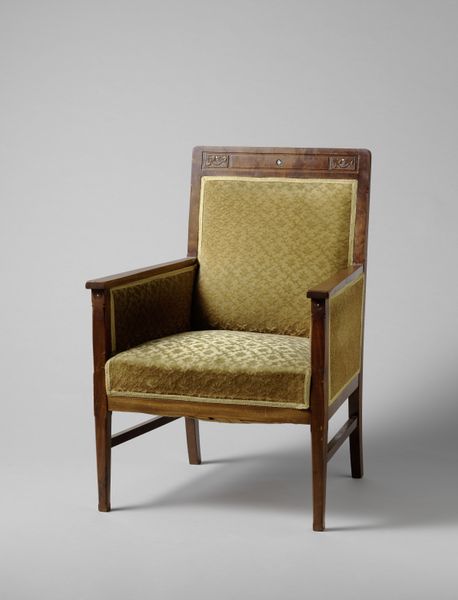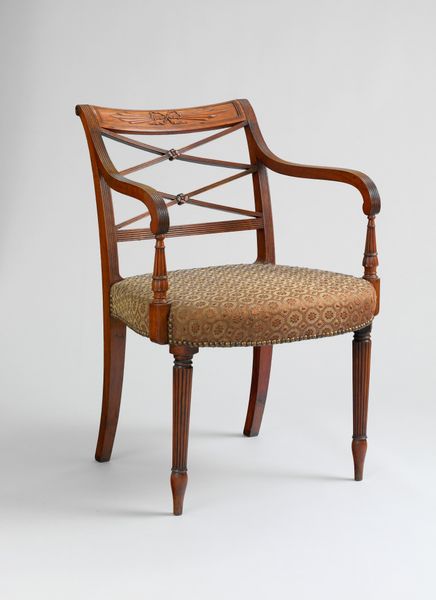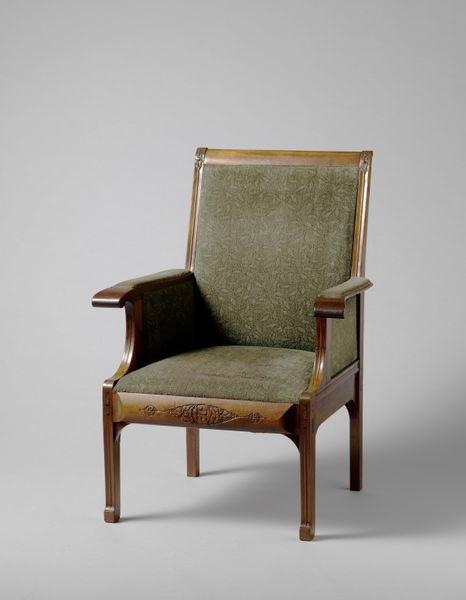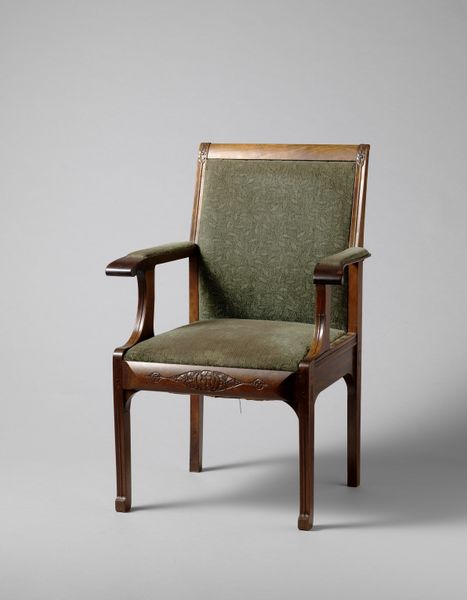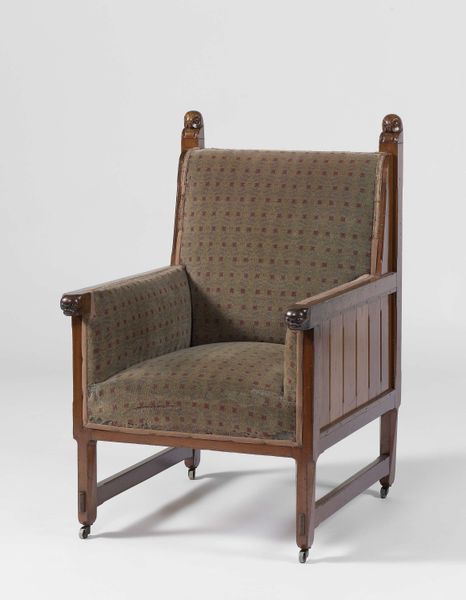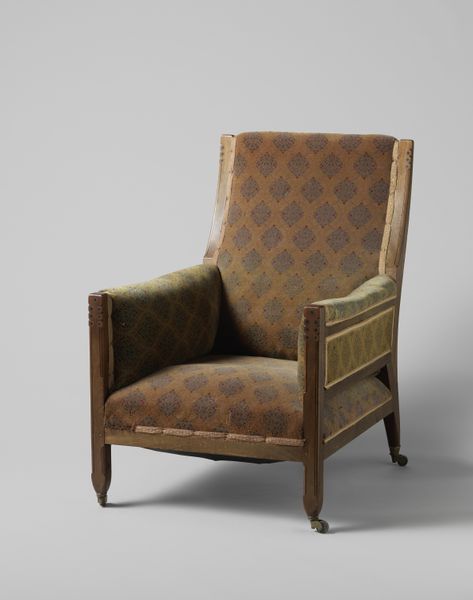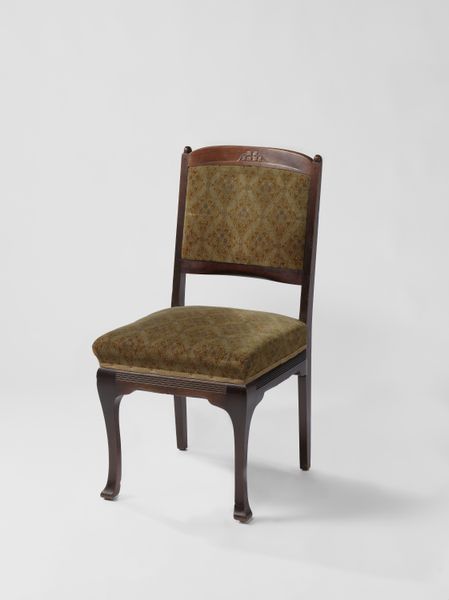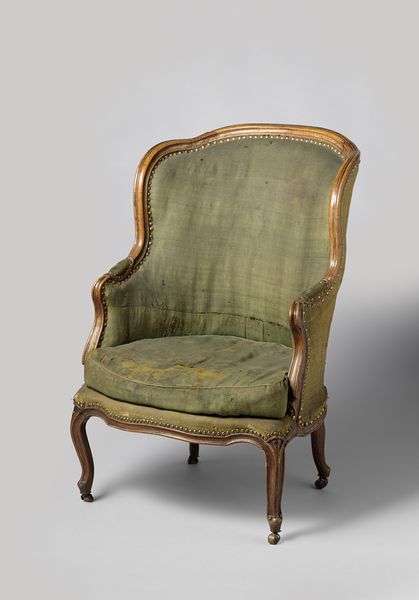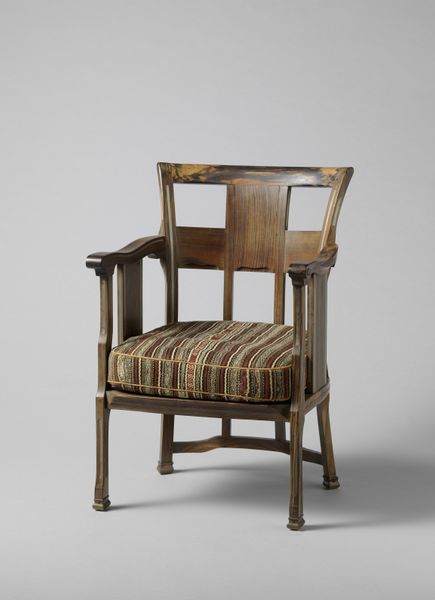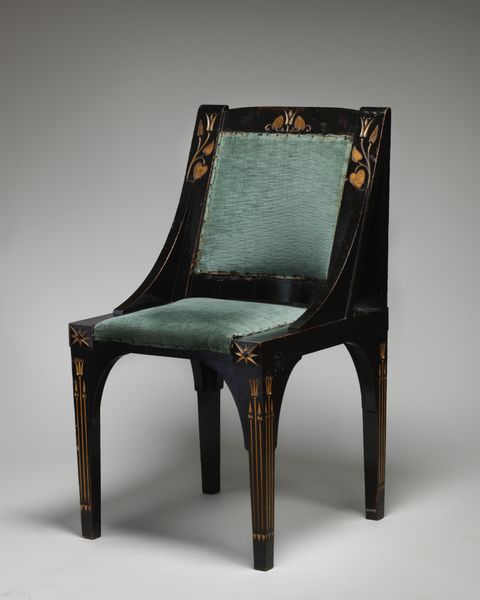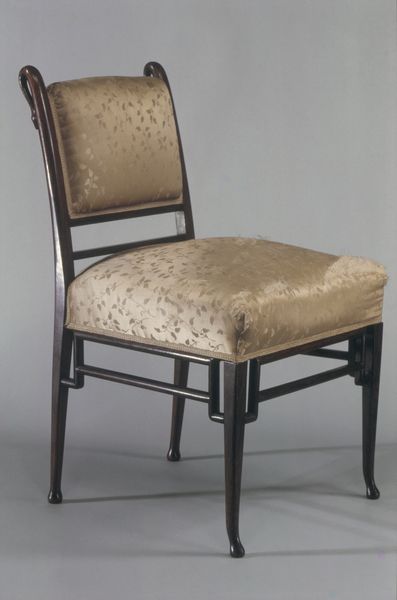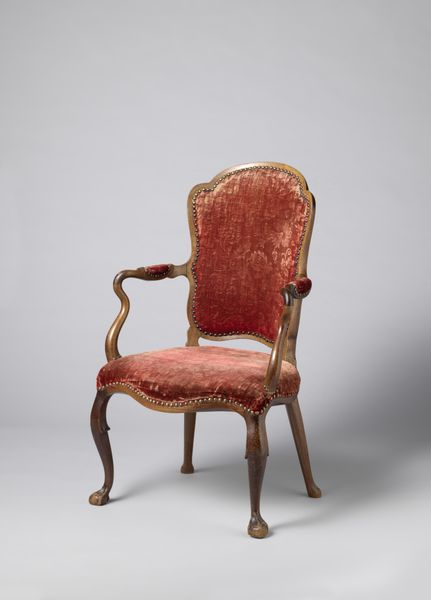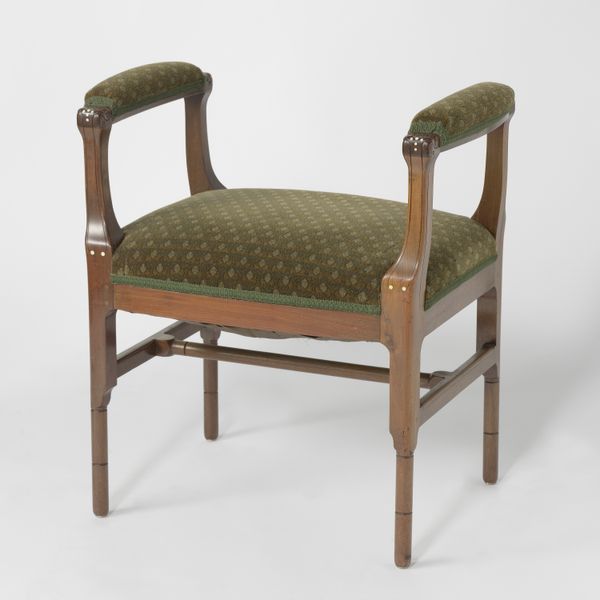
textile, wood
#
neoclacissism
#
furniture
#
textile
#
wood
Dimensions: height 96 cm, width 74 cm, depth 79 cm, height 53 cm, depth 52 cm
Copyright: Rijks Museum: Open Domain
This armchair, now at the Rijksmuseum, is thought to have belonged to General Baron Chassé. Its anonymous maker produced this chair for a man who became a symbol of Dutch identity and military resolve during the Belgian Revolution. The chair offers a glimpse into the complex relationship between personal comfort, national identity, and military power. What did it mean to sit in this chair, knowing its association with a figure who embodied both authority and resistance? The chair's worn upholstery and sturdy frame speak to the sitter’s possible emotional states during times of conflict. It represents not only the sitter’s physical support, but his symbolic weight and the values he upheld. The chair invites us to consider how objects become intertwined with personal and collective histories, reflecting societal issues and personal dimensions of power, identity, and memory.
Comments
No comments
Be the first to comment and join the conversation on the ultimate creative platform.
